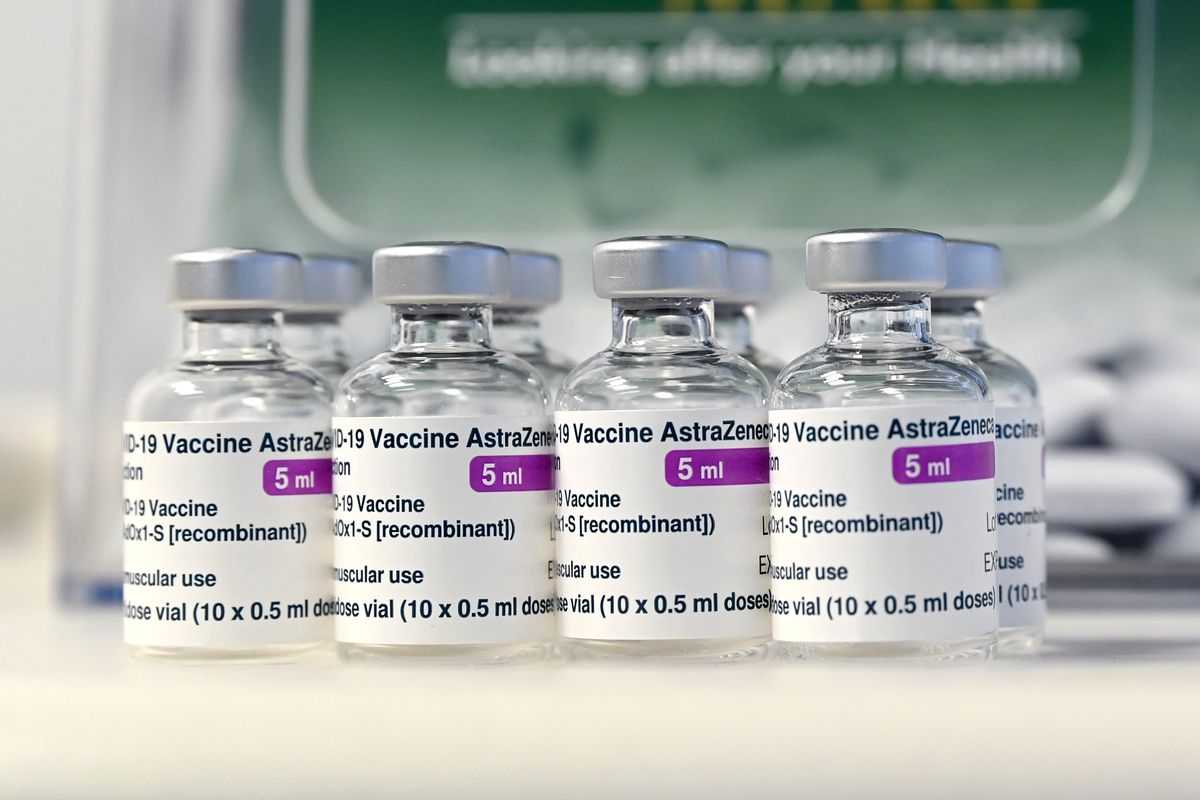
On 17 March 2021 Thailand Department of Disease Control (DDC) and AstraZeneca Thailand released a joint statement regarding AstraZeneca vaccine, as follow:
1.The investigation of the post-vaccination adverse events in Denmark has indicated no link to the vaccine. In Thailand, the academic committee under the Communicable Disease Act B.E. 2558 (A.D. 2015) approves vaccinations to continue in upper-risk people aged 60 years and older in high-risk provinces as planned. On 16 March 2021 marked the official beginning of COVID-19 Vaccine AstraZeneca rollout in Thailand, with the first recipients being Prime Minister H.E. General Prayut Chan-o-cha, 17 cabinet members and 5 medical advisors including Clinical Prof. Emeritus Piyasakol Sakolsatayadorn, Prof. Yong Poovorawan, Prof. Prasit Watanapa, Prof. Piyamitr Sritara, and Dr. Sophon Mekthon. To stregnthen public confidence, the vaccination rollout took place at Santi Maitri Building at Government House before the cabinet meeting.
2. To make COVID-19 vaccines available for people residing in Thailand on a foundation of ethics, equality, academic-based evidences, accessible supply, and management capability in national context, Thailand has been working under the Communicable Disease Act B.E. 2558 (A.D. 2015). On January 14, 2021, the National Communicable Diseases Committee (NCDC) has formed a sub-committee and tasked it with overseeing the rollout of COVID-19 vaccinations. Chaired by Public Health Vice Minister Dr. Sophon Mekthon, the sub-committee comprises all Thailand’s vaccine frontliners and aims at mitigating severe illness and death, stabilizing healthcare system, reducing virus transmission risk, and sustaining economic and social stability. All operations are under the consideration of Centre for COVID-19 Situation Administration (CCSA) and with the cabinet’s approval of budget for vaccines to be available for the people across Thailand. The nation-wide vaccination program is scheduled to be completed in 2021.
3.Before being approved for public use, the vaccines must be put through many phases of clinical trials to ensure efficacy and safety. AstraZeneca with its vaccines has passed such critical process and been approved from Medicines and Healthcare products Regulatory Agency (MHRA), European Medicines Agency (EMA), World Health Organization (WHO) and regulators in over 70 countries.
4.Adverse events from vaccinations can happen at anytime and in anywhere across the world, with most of them being non-severe. In Thailand, thrombotic events occur at a very low rate in comparison to western countries; 3 times lower than in Europe and United States. Compared to those without underlying diseases, it is likely to be found 4.5 times higher in people with underlying diseases such as autoimmune disease or solid tumor, people on contraceptive pill, and people who have family history with thrombosis. Based on the global adverse-event reports AstraZeneca has received in February and early March, there have been 29 events of Deep Vein Thrombosis or DVT. This 29-event rate is only 0.03 time of 916 people expected to occur naturally in a general population of the same size.
5.Over 300 million people have been vaccinated worldwide, more than 6 million people in Asia. Amongst the given vaccines, 34 million doses are of AstraZeneca used in France, Norway, Belgium, UK, Germany, Spain, the Netherlands, Australia, Canada, Austria and South Korea. No evidence links COVID-19 Vaccine AstraZeneca to severe adverse events or death. Regarding the seven post-vaccination deaths in South Korea and some European countries (2 cases in Austria), the investigation has been conducted with a conclusion that confirms the deaths as non-vaccination related. Furthermore, the rate of post-vaccination deaths in South Korea is much lower than the normal death rate of the country.
6.Suspensions in a number of countries including Denmark, Norway, France, Germany, Italy and Indonesia are normal procedures to be taken while waiting for evidence that proves the role of vaccination in the incidents. As of today, WHO and EMA have both approved for the vaccinations to be continued as the benefits still outweigh the risks.


